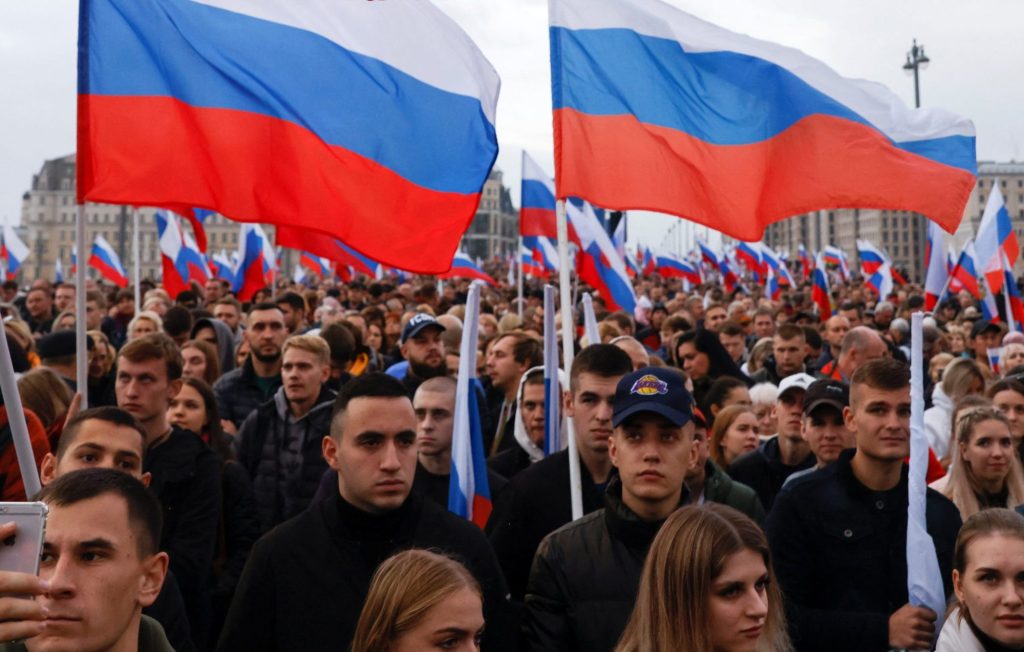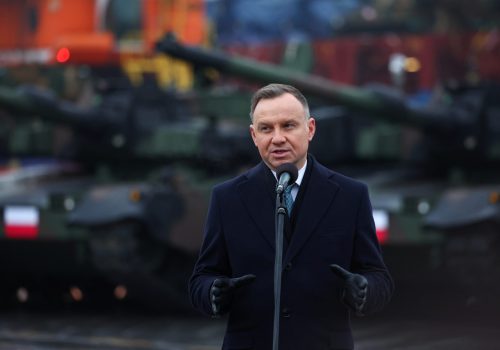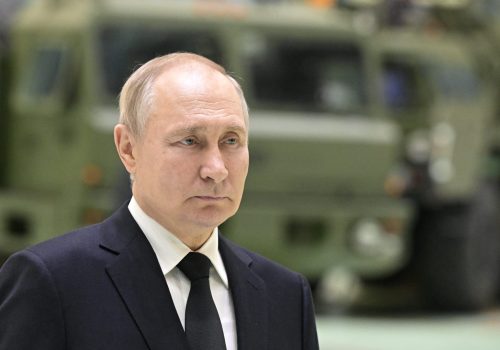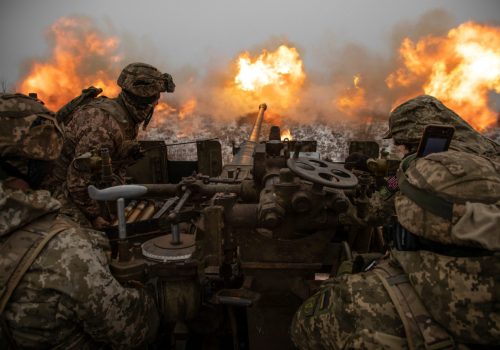Vladimir Putin insists Russians and Ukrainians are “one people” but his brutal invasion of Ukraine has revealed a remarkable lack of “brotherly” Russian empathy for Ukrainians. While many people in other former Soviet republics have identified with Ukraine’s suffering, relatively few Russian citizens have shown any sign of compassion or remorse for the genocidal violence being perpetrated in their name.
According to research conducted by Russia’s internationally respected independent pollster, the Levada Center, Russian public support for the war remained above 70% throughout 2022. Speaking to Germany publication Der Spiegel in early 2023, Levada Center scientific director Lev Gudkov observed that mounting evidence of the atrocities taking place in Ukraine had made virtually no impact on Russian public opinion. “The Russians have little compassion for the Ukrainians. Almost no one here talks about the fact that people are being killed in Ukraine.”
Much of the available evidence supports these poll findings and points to a remarkable absence of empathy. Millions of Ukrainians have friends and family in Russia. Many report being shocked by the lack of compassion they have encountered since the start of the invasion. Rather than sympathy or concern, they have been confronted by cold indifference, outright denials, or pro-Kremlin propaganda tropes.
The hundreds of thousands of Russians who fled the country over the past year have not staged any major anti-war rallies while in exile, despite no longer being subject to draconian Kremlin restrictions. Inside Russia itself, there have been no significant protests since the first weeks of the war. The contrast provided by mass anti-government rallies over the past twelve months in other repressive dictatorships such as China and Iran has cast the silence of the Russian population in an even more unfavorable light.
This apparent lack of empathy for the victims of Russian imperial aggression is nothing new. Many Russians displayed similar attitudes toward the two Chechen wars of the early post-Soviet era and the 2008 invasion of Georgia. More recently, the 2014 invasion of Crimea was widely cheered and remains arguably the most popular single event of Putin’s entire 23-year reign. Such thinking reflects the unapologetically imperial identity which the Russian Federation inherited from the Soviet and Czarist eras.
Stay updated
As the world watches the Russian invasion of Ukraine unfold, UkraineAlert delivers the best Atlantic Council expert insight and analysis on Ukraine twice a week directly to your inbox.
Modern Russian national identity remains firmly rooted in notions of a sacred imperial mission that perceives Russia as being a unique civilization locked in an eternal struggle against various constructed foreign enemies. Hundreds of years ago, the messianic vision of the czars gave rise to the idea of Russia as the Third Rome and leader of Orthodox Christianity. In the twentieth century, this belief in imperial exceptionalism was harnessed to identify Russians as the nation that would save the world from capitalism and lead a global communist revolution.
Under Putin, the lyrics may have changed but the tune remains largely the same. Indeed, it is telling that while Soviet communism has long since been consigned to the ash heap of history, today’s Russia has seamlessly inherited the USSR’s Cold War-era animosity toward NATO, the United States, and the Western world in general.
The sense of imperial mission pervading modern Russian society has helped nurture values of sacrifice and obligation at the expense of individual human rights. Many Russians take it for granted that they are destined to rule over other nations and interpret their colonialism as fundamentally benevolent, even when it is obviously unwelcome. Russia’s victims must be liberated, whether they like it or not.
Whether driven by the Orthodox faith, the communist ideology, or Putin’s far vaguer notions of a “Russian world,” this highly paternalistic brand of imperialism grants Russians the right to speak on behalf of their subject peoples. Accordingly, there is no need to actually listen to these conquered peoples or empathize with them, even while proclaiming them as “brothers.” Those who oppose this holy crusade are logically understood to be representatives of evil. It is no coincidence that a whole host of senior Russian officials include Putin himself have sought to frame the invasion of Ukraine as a battle against Satanists.
While Russian opposition figures are often critical of the Putin regime, they are typically far less outspoken on the topic Russian colonialism, the root cause of the current genocidal Ukraine invasion. Instead, some seek to portray themselves as the real victims of the Kremlin while failing to make the obvious connection between the authoritarianism they claim to oppose and the imperialism they choose to ignore. By blaming everything on Putin, they embrace the same convenient victimhood that the Kremlin itself promotes when faced by the negative consequences of its imperial policies.
Eurasia Center events

The national mythologies of today’s Russia and Ukraine could hardly be more different. While many Russians readily embrace their country’s imperial identity, imperial ideas do not resonate in Ukraine. Even before the onset of Russia’s full-scale invasion one year ago, Ukrainians already tended to define their national identity in terms of resistance to the narrative of submission, while prioritizing personal freedoms over obligations to the state.
Since the early 1990s, Ukraine’s post-Soviet nation-building journey has been shaped by a struggle for true independence. This has led to the merging of civic and anti-colonial resistance movements, with the country’s two Maidan revolutions serving as important landmarks on the road toward internal and external freedom.
For almost two decades, Ukraine’s trajectory has been viewed with mounting anger and alarm in the Kremlin. Haunted by the Soviet collapse of the late twentieth century, the Putin regime regards Ukraine’s democratization as an existential threat to its own authoritarian model and a potential catalyst for the next stage in Russia’s imperial retreat.
For the time being, other post-Soviet states such as Belarus and Kazakhstan act as alternatives to Ukraine’s anti-colonial identity. In these countries, domestic democratic development has been stifled by Kremlin-backed regimes that have chosen not to break decisively with the imperial past. However, there are signs that the current status quo may not be as stable as Moscow would like to think.
Ukraine’s defiant resistance to Russia’s invasion is energizing civil society throughout the former USSR and fueling unprecedented debate over the role of Russian colonialism. On the international stage, the war unleashed by Vladimir Putin in February 2022 has introduced contemporary global audiences to the realities of modern Russia’s imperial identity.
Commentators around the world are now actively discussing the practical implications of a post-colonial Russia. Such talk is no longer considered entirely fanciful. On the contrary, many now believe that defeat in Ukraine would deal a decisive blow to hopes of a new Russian Empire and transform the entire Eurasian political landscape. Ultimately, It is up to Russian society itself to dismantle the country’s imperial identity in order to reckon with the horrors of Russia’s past and address the crimes of the current genocidal war.
Botakoz Kassymbekova is Assistant Professor of Modern History at the University of Basel.
Further reading
The views expressed in UkraineAlert are solely those of the authors and do not necessarily reflect the views of the Atlantic Council, its staff, or its supporters.

The Eurasia Center’s mission is to enhance transatlantic cooperation in promoting stability, democratic values and prosperity in Eurasia, from Eastern Europe and Turkey in the West to the Caucasus, Russia and Central Asia in the East.
Follow us on social media
and support our work
Image: People attend a concert in Moscow marking the declared annexation of the Russian-controlled territories of four Ukraine's Donetsk, Luhansk, Kherson and Zaporizhzhia regions. September 30, 2022. (REUTERS/REUTERS PHOTOGRAPHER)




